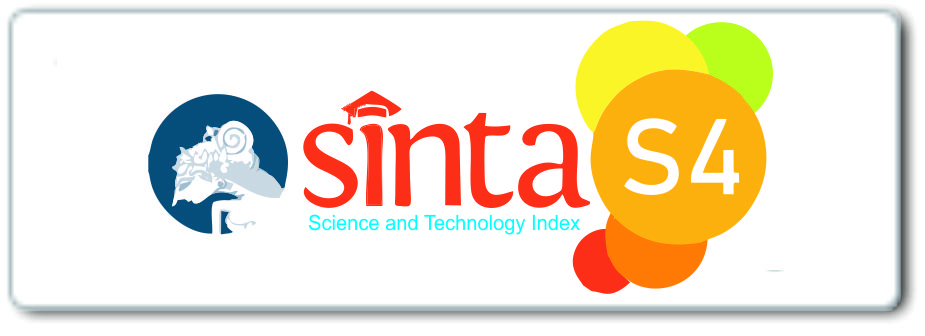PENGARUH KEPEMIMPINAN KEPALA MADRASAH DENGAN BUDAYA BELAJAR DAN PRESTASI BELAJAR PESERTA DIDIK
DOI:
https://doi.org/10.24256/kelola.v6i1.1834Keywords:
Leadirship, Head Master, Learning culture, students, achievement.Abstract
This reseach focuses on the problem, there are: 1) is there affect of the madrasah head leadership on learning culture and learning achievement of students in Madrasah Aliyah Negeri (MAN) Palopo, 2) is there a relationship between the learning culture and student achievement in learning with the head of Madrasah Aliyah Negeri (MAN) Palopo State Leaders. This research uses quantitative research and the analysis formula of Simple Linear Regression or often referred to as SLR (Simple Linear Regression). The data of this research are in the form of madrasah principals leadership in developing student learning culture and student achievement. The population of this research was 838 student. There are 27 classes. The researcher took 100 students as sample of research. The variable of the research are madrasah principals leadership as the independent variable (x). While those as the dependent variables are learning culture (Y1) and learning achievement (Y2). Base on the result of the t test calcutaion. Analysis shows that there is a significant influence of variables (x) on learning culture (Y1) and learning achievement (Y2). It evidences by the result of the calculation of t count of 1,075 and 283 compare to t table (df =100) which is 0,667 significant level of 5%. So when thitung > ttabel them H1 is accepted and H0 is rejected. It means that there is an influence of madrasah leadership between culture of learning and learning achievement of students with the head of Madrasah Aliyah Negeri (MAN) palopo. The implivation of this researh to accept a positive learning culture and learning avhievement to relate with the students’ personal personaly talents, and the absorption of a negative culture will have implicatins that can be derrimental to individual and others in the palopo Aliyah Negeri Madrasah (MAN) environment.
References
Arikunto Suharsimi. Evaluasi Pengajaran Edisi Revisi. Jakarta: Rineka Cipta, 2006.
H.A.R, Tilaar. Paradigma Baru Pendidikan Nasional. Jakarta: Rineka Cipta, 2004.
Moh. Tika Pabundu. Budaya Organisasi dan Peningkatan Kinerja Perusahaan. Jakarta: PT. Bumi Aksara, 2006.
Wahjosumidjo. Kepemimpinan Kepala Sekolah, Tinjuaun Teoritik dan Permasalahannya. Jakarta: Raja Grafindo Persada, 2010.
Depdiknas RI. Undang-Undang Republik Indonesia Nomor 20 Tahun 2003 Tentang Sistem Pendidikan Nasional. Bandung: Citra Umbara, 2003.
Umaedi, Manajemen Peningkatan. Jakarta: Direktorat Jendral Penedidikan Dasar dan Menengah Umum, 1999.
Hj. Jumrah, Kepala Madrasah, Wawancara di Madrasah Aliyah Negeri (MAN), Pada hari selasa, 15 Oktober 2019, Pukul 09.00.
Imam Suprayoga, Quo Vadis Madrasah, Gagasan Aksi dan Solusi Pembangunan Madrasah. Yogyakarta: Hikayat Publising, 2007. (accessed April 23, 2019).
Nana, Sudjana. Penilaian Hasil Proses Belajar Mengajar. Bandung: PT.Remaja Rosdakarya Offiset, 2002.
Suharsimi, Arikunto. Evaluasi Pengajaran Edisi Revisi. Jakarta: Rineke Cipta, 2010.
Hj. Jumrah, Kepala Madrasah. Wawancara di Madrasah Aliyah Negeri (MAN), Pada hari selasa, 15 Oktober 2019, Pukul 12.30.
Imam Wahyudi. Pengembangan Pendidikan Strategi Inovatif & Kreatif Dalam Mengelola Pendidikan Secara Komprehensif. Jakarta: Prestasi Pustaka, 2012.
Wahjosumidjo. Kepemimpinan Kepala Madrasah, Tinjauan Teoritik dan Permasalahannya. Jakarta: PT.Rajagrafindo Persada, 2010.
Koentjaraningrat. Mutu dan Pengembangannya, Cet.ke-11. Jakarta: Gramedia, 2004.
P.Kotter & J.L.Hesket. Dampak Budaya Perusahaan Terhadap Kinerja, Ter.Benyamin Molan. Jakarta: Prehalindo, 1992.
Muhibbin Syah. Psikologi Pendidikan dengan Pendekatan Baru. Bandung: PT. Remaja Rosdakarya OFFset, 2005.
Sugiyono. Metode Penelitian Pendidikan Kuantitatif, Kualitatif, dan R&D. Bandung: CV. Alfabeta, 2012.




 This is an open access article under the
This is an open access article under the 